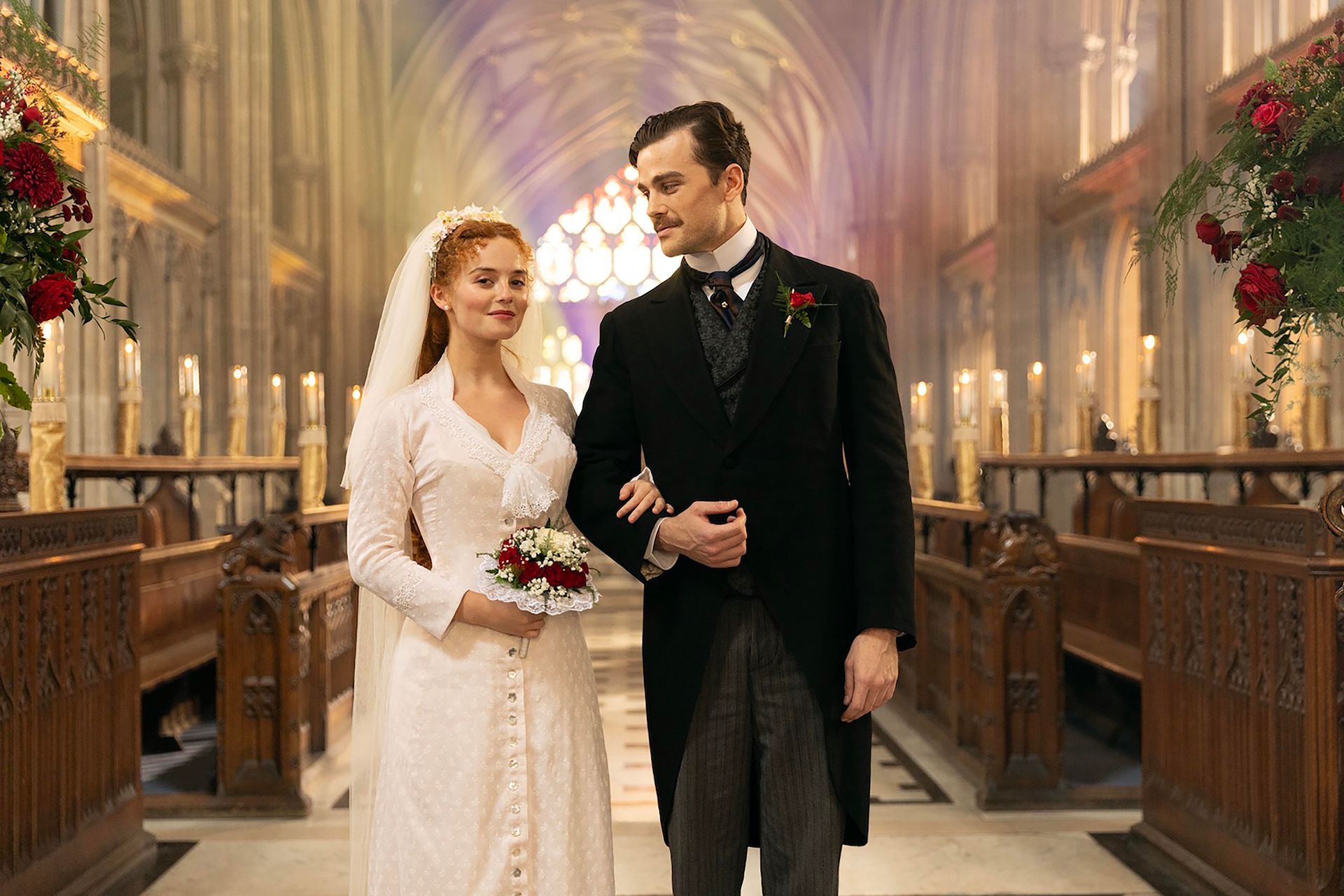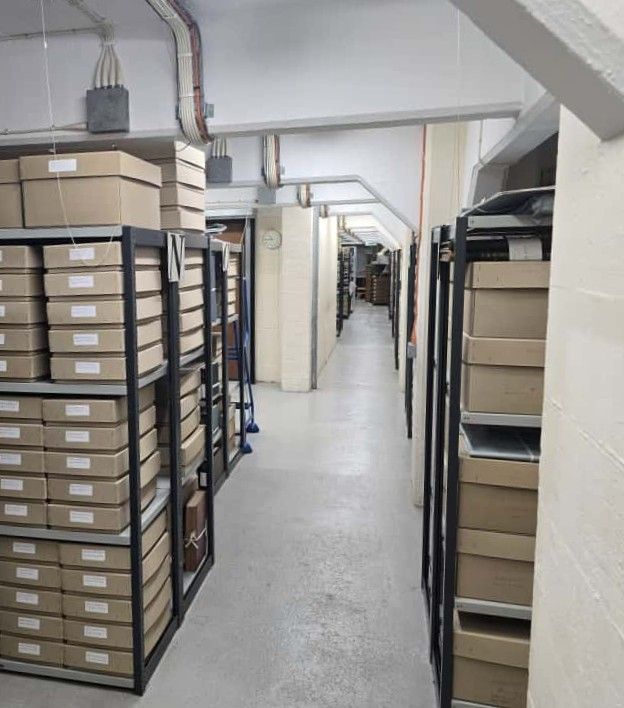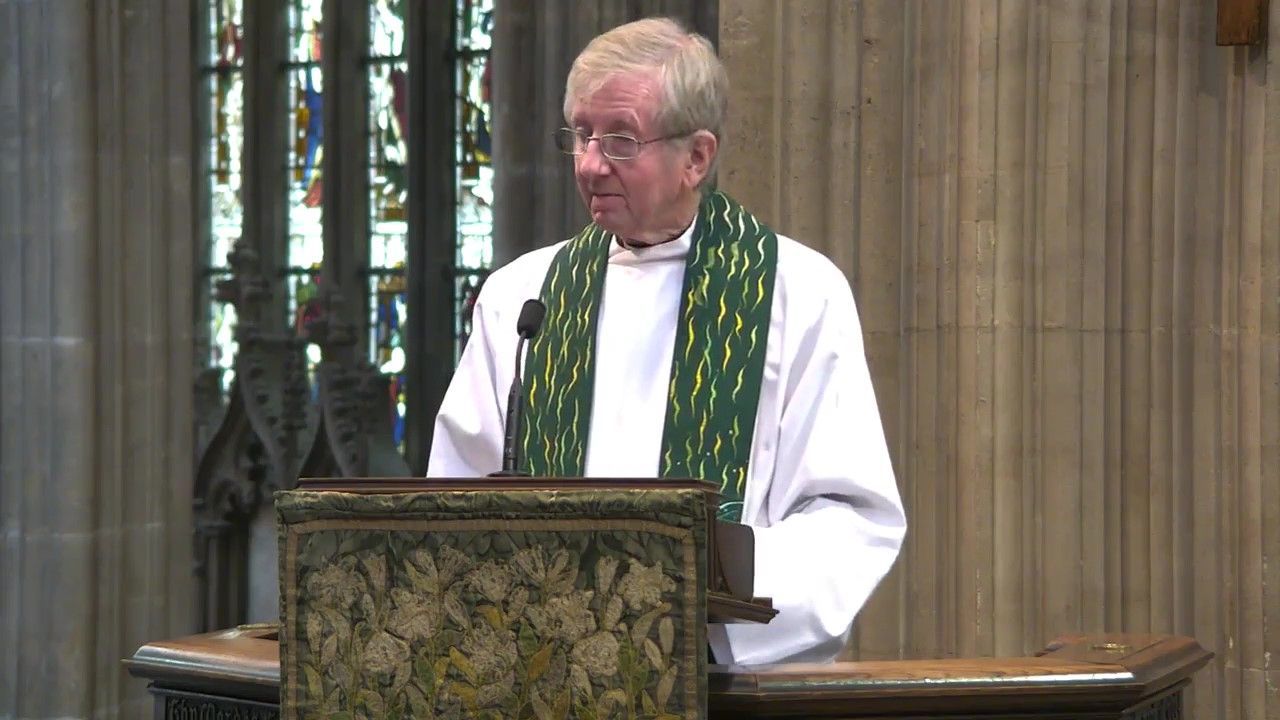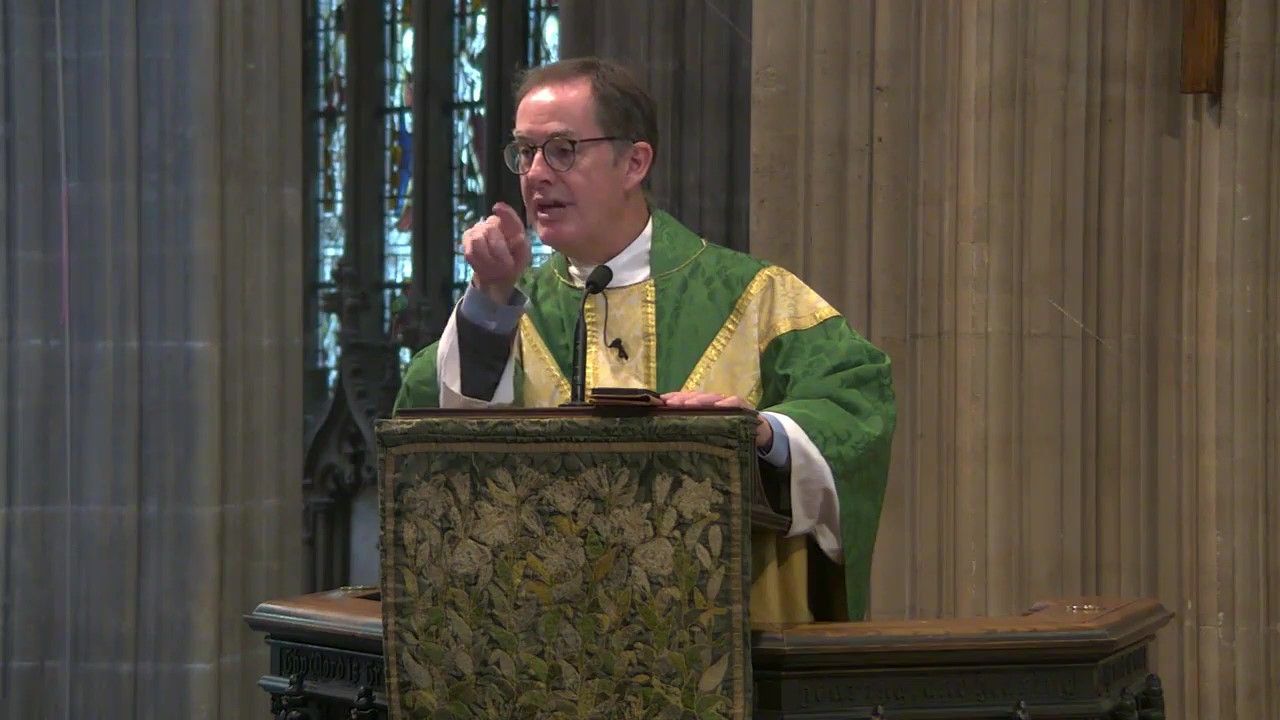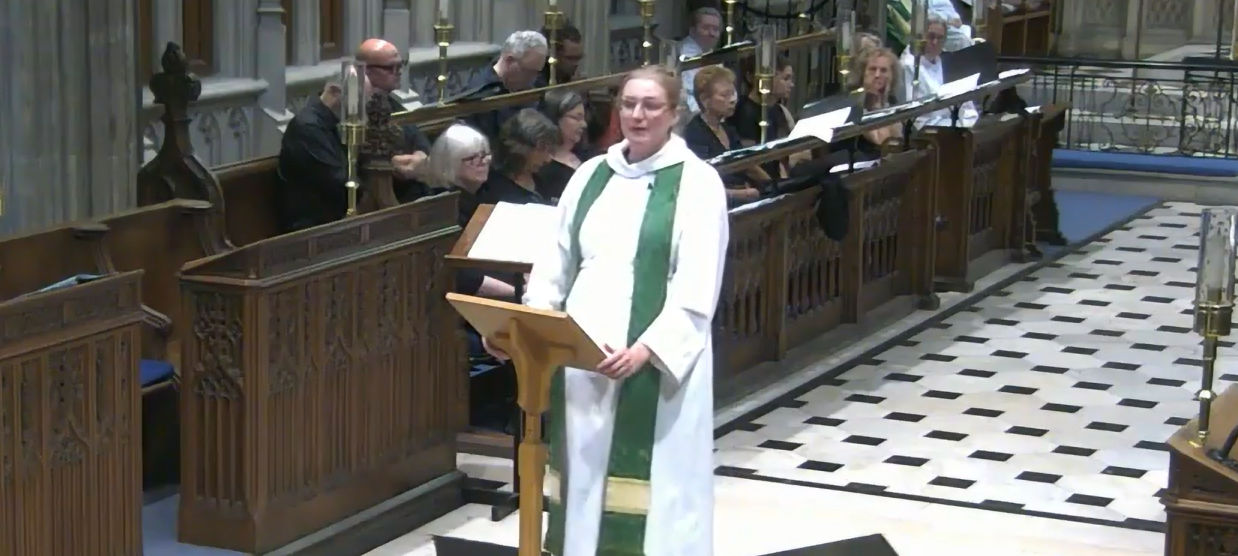The Commemoration of HM Queen Elizabeth II
Sermon by Rev Canon Dan Tyndall, Vicar, St Mary Redcliffe.
I was surprised to find myself moved to tears at the death of the Queen.
For some, her death touches a raw nerve of personal grief. For others, it adds another layer of uncertainty in a world that is feeling increasingly uncertain. And then there are those who have been moved to tears by the flowers, the candles, the pictures that have filled our TV screens.
And me? Well, like many others, I was glued to the coverage on Thursday evening. At some point they showed the Platinum Jubilee sketch of Her Majesty having tea with Paddington Bear. At first it made me smile, recalling the delight of the moment it was first seen back in June. Then, after The Queen has put her marmalade sandwich back in her handbag, there’s a very still moment when Paddington says “Happy Jubilee Your Majesty – and thank you – for everything!” That’s when I wept.
At one level, it is extraordinary that the death of a 96 year old has caused this sense of loss and bewilderment: after all, we’ve all known this day would come. But at another level, it is not at all surprising that this historic moment upsets and disturbs us. Through 70 years she has been the one constant in our national life: through the evolution of television and the internet; through the Windrush generation and the death of Stephen Lawrence; through the joining and the leaving of the European Union; through her Annus Horribilis and the death of Diana; through the swinging sixties, the introduction of Civil Partnerships and now Same Sex Marriage; through fifteen Prime Minister’s, seven Archbishop’s of Canterbury and six Vicar’s of St Mary Redcliffe.
It could be argued that that constancy is just as constant now as it ever has been. The Royal Standard, the flag that is always at full mast over the royal palace whenever the monarch is in residence, would have been flying – in its Scottish variant – over Balmoral at full mast throughout the time Elizabeth was alive and on until Charles left to return to London. This ritual of royal succession is well known and well attested. We just haven’t seen it played out for 70 years.
And the ritual knows that the Royal Standard, representing both the sovereign and the United Kingdom, never flies at half-mast for there is always a sovereign. In that way, the constancy that we have delighted in with our Queen continues with our king.
However, that is to over-simplify the complexity of our human nature; that in our very humanity we connected, each in our own way, with the humanity of the Queen. Whether it was that smile that lit up a room; that she was thoughtful, wise, curious and funny; the way she behaved with dignity and grace; her devotion to duty sustained by her faith; or her love of horses and how she always carried biscuits to feed to the corgis.
But if her humanity connects with our own – and if her mortality reminds us of our own – then maybe the faith which so publicly sustained her throughout her life, can sustain us as well in her death.
There is little doubt that Queen Elizabeth’s understanding of the nature of her service to her country, of which she spoke most eloquently when she addressed the Commonwealth from South Africa on her 21st birthday, came from her faith in God. She regularly spoke about her faith in her Christmas broadcasts. From 2002:
I know just how much I rely on my own faith to guide me through the good times and the bad
A sentiment echo’d by William, Prince of Wales, in his statement about “his Queen and his grannie”.
And even when the Queen wasn’t explicit, her faith was often there in the background. As in 1957:
We need a special kind of courage, not the kind needed in battle, but the kind that makes us stand up for everything that we know is right, everything that is true and honest.
The courage to stand up for what is right and true and honest is indeed a call to constancy. And for her, and for all those of us who call ourselves Christian, that is about more than what is good and true and honest in this world. It also embraced her hopes and expectations of whatever befalls us when we have shuffled off this mortal coil. It is a statement about faith, faith in life and faith in death.
A faith that is right and true and honest means, as Paul writes to the church in Corinth:
we do not lose heart; For we know that if the earthly tent we live in is destroyed, we have a building from God, a house not made with hands, eternal in the heavens.
This is the faith to which Queen Elizabeth held. She believed it to be true and right and honest. And I can’t help wondering if this was behind her broadcast at the start of the pandemic:
we will be with our families again; we will be with our friends again; we will meet again
In the light of the Prime Minister's stark warning about many of us facing the death of loved ones, I can’t help wondering whether these words were not just a declaration of hope but also a statement of faith.
The constancy of Her Majesty has been noted by many over the last few days: it encouraged many; it inspired many; it moved many to tears. However, it is interesting to note that when the writer of Lamentations wanted to described the love of God that never ceases, the word selected was not ‘constant’ but ‘steadfast’:
The steadfast love of the Lord never ceases.
As The Dean of Westminster said in his sermon on Radio 4 on the Sunday after her death
To be constant, is to be sure, to survive, to be certain. But to be steadfast is bolder and braver than to be constant, for it is about more than surviving and sustaining. To be steadfast is to fix mind and eye on truth and then pursue it; to live out a confidence that life has purpose and meaning
So perhaps the best way for us to express our gratitude for Her Majesty’s steadfastness is to pick that baton and to decide to be steadfast ourselves:
Steadfast in faith: choosing to believe that nothing and no-one is beyond the love of God
Steadfast in service: loving our neighbour, no matter what race, creed or colour. As the queen said in 2004:
The need to look after a fellow human being is far more important than any cultural or religious differences
Steadfast in support: now, as the mantel passes imperceptibility and invisibly, as it has for more than a thousand years, carrying with it the serious weight of responsibility and expectation, to rest on the shoulders of our new sovereign, King Charles the Third.
God save the King.
